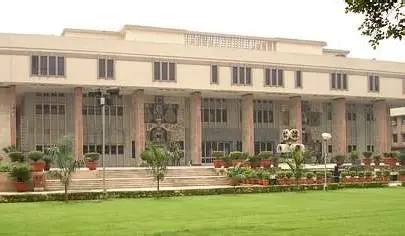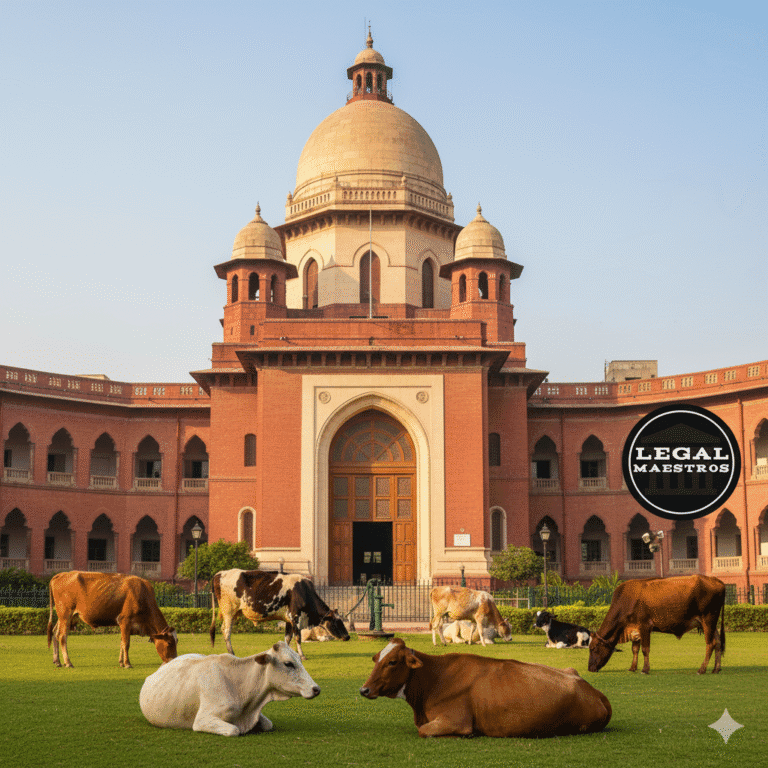
The petitioner, Ambuj Hotel and Real Estate Pvt. Ltd., had entered a tender issued by IRCTC for onboard catering services on Train No. 20707-08, the Secunderabad–Visakhapatnam Vande Bharat Express. Following due process, it was awarded the contract via a Letter of Award dated 7 August 2024 and a fixed annual license fee of ₹1.8 crore was agreed upon. After agreeing with initial requirements, a Letter of Commencement was issued on 19 December 2024, signing the start of operations.
Although the conflict arose when IRCTC demanded an additional license fee of ₹2.12 crore, mentioning an increase in the number of train coaches from 8 to 16, invoking Clause 3.3 of the Master License Agreement. Ambuj Hotel disputed this demand, asserting that the original bid documents specified 21 coaches, and therefore, the composition was already accounted for in their bid. They further contended that Corrigendum No. 3, dated 16 February 2024, had removed the clause that allowed pro-rata changes in license fee based on coach composition.
The petitioner alleged that IRCTC’s action violated contractual terms, was arbitrary, and breached the principle of promissory estoppel, as IRCTC failed to hand over the train despite issuing a Letter of Commencement. Due to this delay and the additional fee demand, the petitioner claimed significant financial losses and approached the Delhi High Court seeking relief.
For any queries or to publish an article or post or advertisement on our platform, do call at +91 6377460764 or email us at contact@legalmaestros.com.
On the other hand, IRCTC challenged the maintainability of the writ petition itself. The corporation argued that:
- The dispute arose purely from a commercial contract with no public or statutory element, and thus, outside the purview of Article 226.
- The contract contained an arbitration clause, offering a sufficiently efficacious alternate remedy.
- The jurisdiction was improperly invoked in Delhi, since all contractual activities, including communication and contract execution, occurred in Secunderabad and Varanasi.
IRCTC further claimed that the mention of 21 coaches in the bid document was a typographical error, and all previous short-term tenders had clearly indicated that the train comprised only 8 coaches. They referred to the Disclaimer Clause in the bid notice which obligated bidders to double-check all facts on their own and disowned IRCTC for any kind of mistake.
The court, in examining the submissions, emphasized that the controversy entailed intricate factual determinations and contractual constructions, specifically on:
- Whether the number of coaches was correctly stated in the tender,
- Whether Clause 3.3 allowed for pro-rata fee changes, and
- Whether promissory estoppel applied against IRCTC’s changed position.
Justice Mini Pushkarna observed that such disputes, being contractual in nature, typically do not fall under the extraordinary jurisdiction of a constitutional court, especially when an arbitration clause exists and no public law element or fundamental rights violation is involved.
The court observed that though writs are not excluded completely in matters of contracts, they tend to be reserved for cases where the state or public authority acts in contravention of statutory obligation, public confidence, or shows evident arbitrariness under Article 14.
Although there was no final decision on merits in the quoted text, the tone and rationale of the Court clearly suggest that the petition was in all probability to be rejected on maintainability grounds, with the petitioner being directed to seek relief through contractual disputes resolution procedures, particularly arbitration.
References
1. Delhi High Court Judgment, W.P.(C) 2706/2025, Ambuj Hotel and Real Estate Pvt. Ltd. v. Union of India & IRCTC, dated 01 July 2025.
2. Constitution of India, Article 226 – Writ Jurisdiction.
3. Master License Agreement and Corrigendum No. 3, IRCTC, 2024.
4. Legal doctrine: Promissory Estoppel and Contractual Estoppel.
5. Precedent: Principle of law: Alternate remedies available and arbitration clause—as laid down in the precedents such as State of U.P. v. Bridge & Roof Co. (India) Ltd., (1996) 6 SCC 22.







